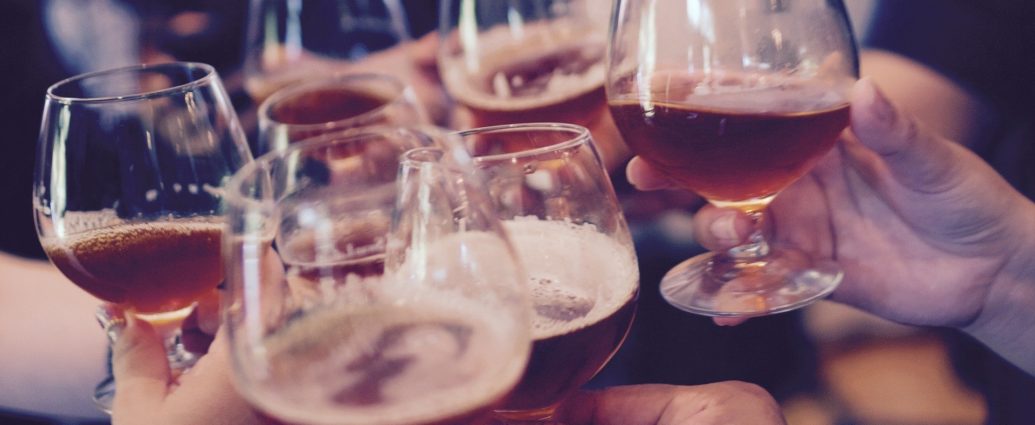Since the Prime Minister announced the plan for England’s journey out of Lockdown, 21st June has not strayed far from the public’s mind. Allowing nightclubs to reopen on the same day as the end of Covid-19 restrictions instantly created a lot of hype. Look at any social media platform. 21st June is unofficially the date for a huge party and everyone is invited.
21st June will be celebrated as if it were a National Holiday. The Twitter account @DaysUnitlJune21June counts down the days until Lockdown restrictions lift and the world returns to how it was before. It’ll be a countdown for the history books.
52
— Days until June 21st (@DaysUntil21June) April 30, 2021
The collective excitement over lockdown lifting is a great thing. Like any person, I love seeing memes about 21st June on my Twitter feed. It is a much-needed breather from discourse and bad news.
However, one thing I have not seen is a discussion surrounding lockdown lifting and drinking peer pressure in young people. It is an important topic that needs to be discussed but it has been ignored amidst the rose-tinted outlook COVID-19 will disappear with the snap of a finger.
The shared excitement of restrictions lifting is everywhere. As social venues plan their reopening, websites such as ASOS and Nasty Gal are curating outfits and monetising on the first summer free of restrictions to buy party-ready outfits. All this has hidden a conversation about alcohol.
A quick disclaimer: this isn’t to say I’m not excited for 21st June and a return to normal. I miss going to the pub with my friends and especially the weekly pub quiz nights. But, I’m also slightly nervous about how relaxing restrictions will happen after a year of such tight rules and regulations.
I spent a big part of my University years in the pub after lectures or out for drinks with friends. However, I lost this experience in my final few months of my degree. The first lockdown began in my final term, and I decided to start antidepressants in early 2020.
“It does make me slightly apprehensive about my generation’s eager return to our drinking culture.”
Taking an antidepressant affects your tolerance to alcohol and now I physically cannot drink as much as I used to.
In my eyes, this isn’t a bad thing, and I’m still so glad I decided to start them. However, it does make me slightly apprehensive about my generation’s eager return to our drinking culture.
“I’m slowly coming to realise that it is okay for me and others to have fun not drinking without feeling pressure to constantly have a drink in our hand.”
The fact I can only have two or three alcoholic drinks makes clubbing less appealing. I sometimes have the mindset of to be having fun, I need to be really drunk.
But I’m slowly coming to realise that it is okay for me and others to have fun not drinking without feeling pressure to constantly have a drink in our hand.
In 2019 Drinkaware revealed, “1/3 of UK adults drink more because they felt encouraged by others.” Most said this was due to not wanting to turn down a free drink or needing to match with peers.
Yet despite this and other statistics, there appears to be little mainstream discussion surrounding peer pressure and alcohol. The importance of consent and the dangers of drink driving are common topics. Peer pressure needs to be added to this important list.
“It should be the norm to have a conversation with friends about these anxieties and pressures over the decision to drink or not.”
In a year where mental health has become such a public discussion, the risky mixture of peer pressure and general anxieties about lockdown lifting needs to be highlighted in the mainstream media.
It should be the norm to have a conversation with friends about the anxieties and pressures over the decision to drink or not. Yet, online, there is a general feeling a post-pandemic lifestyle will be exactly as it was before.
That is, less hygienic and with less awareness about personal space.
These additions to society are welcome ones, and I believe it is naïve to assume they will disappear after 21st June. After following the necessary hygiene rules, it may be hard to enjoy the messy culture of bars and nightclubs again.
So many universities use alcohol as incentives to join and to advertise for social nights and student unions. Alcohol plays a big part in the uni experience, yet there are not enough messages spread about the surrounding peer pressure.
Universities have the power to influence students into having such conversations and they need to start using it.
Remember: it is just as okay if you don’t want to have a drink as it is okay for your friend to drink if they want to. You shouldn’t feel pressured to keep drinking to match others, or because you’re in an environment where to have a drink is seen as the only acceptable way.
Sarah Storer
Featured image courtesy of Free-Photos from Pixabay. Image licence can be found here. No changes were made to this image.

